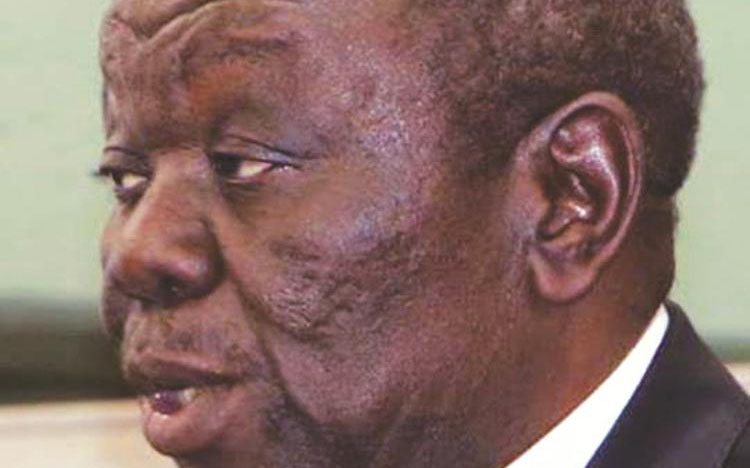Of barter trade, goats for school fees and the jokes
David Mungoshi Shelling The Nuts
Even a passing glance at economics can help us understand national and other economies. The terms “supply” and “demand” are bandied around with regular abandon and become critical when hard times visit a nation, something that leads to all kinds of ideas being tried in an attempt to find solutions.
When just such a situation accosted Zimbabwe in recent times it was time to think outside the box.
BACOSSI (Basic Commodity Supply Side Intervention Facility) a Zimbabwe Reserve Bank intervention instrument at the height of the country’s hyperinflation in 2008 was an attempt to solve the supply side of things.
It was necessitated by the infernal shortage of goods in the shops in the period preceding the Government of National Unity (GNU) in 2009. Goods that were on BACOSSI in the shops were, in fact, subsidised goods. The idea was to try and ease the shortages and also help consumers.
Characteristically, Zimbabweans recognised the lighter side of BACOSSI. Phillip Marufu, a striker who joined Dynamos, from Chapungu FC, the Gweru side was an instant hit at his new club. ‘Bacossi’ became his middle name at Dynamos. The fans were ecstatic that their club had struck gold so easily in Marufu.
Dr Gideon Gono, then governor of the RBZ (Reserve Bank of Zimbabwe) explained that during “the second quarter of 2007 business wantonly increased the prices of goods and services almost on a daily basis, despite having made a commitment to the Social Contract. In order to protect consumers, Government was forced to introduce price stabilisation measures in July 2007.” That was how BACOSSI came about.
Dr Gono further observed that “After the introduction of the facility, the availability of basic commodities . . . improved and the situation (was) expected to further improve in the short-term before the expiry of the facility.”
BACOSSI became part of national discourse and was a precursor to more interventions. Each intervention starting with and subsequent to BACOSSI had its fair share of scrutiny from the public.
This sometimes led to the creation of jokes. The latest such joke on social media is based on what the Minister of Primary and Secondary Education told the media on the question of school fees. He said parents could pay their children’s school fees using livestock.
His mention of goats on national television was the signal for numerous jokes to begin doing the rounds on social media. A good intention was subverted and the minister in some ways became a source of mirth, perhaps unfairly.
Following the news clip on ZTV, a Sunday Mail headline read: SCHOOL FEES NOW PAYABLE IN GOATS. When the joke began it went viral in double-quick time.
WhatsApp chat groups were abuzz with ever more daring presentations and jokes about goat money. Many of the reactions to the story were centred on the idea of barter trade. A considerable number of participants in my chat group were unhappy that Zimbabwe was having to resort to barter in this day and age.
Informed sources on barter agree that, “Barter is a system of exchange where goods or services are directly exchanged for other goods or services without using a medium of exchange, such as money. It is distinguishable from gift economies in many ways; one of them is that the reciprocal exchange is immediate and not delayed in time.”
While people may think the barter outmoded because of its peculiarities such as the double coincidence of wants, the system still has some relevance. In the case of double coincidence of wants there has to be someone, for example, wanting to buy our winter wheat using shoes.
Not only is there a problem of the absence of a common measure of value in such a scenario, but the buyer has to find someone who has wheat and is willing to exchange some of it for shoes. This is what can make the process somewhat cumbersome.
Is barter operational today? In recent times, for countries like Greece and Spain, which have experienced economic downturns, the barter system has come in handy. Barter trade is a reciprocal trade system that is definitely still on the table. According to The International Reciprocal Trade Association 30 percent of the world’s business is done on a barter basis.
Consequently, swapping has also come in with the increased use of the Internet. Some websites now provide facilities for swapping, thus making it possible to exchange such things as clothes, toys and even video games. Nevertheless, people tend to be uneasy about admitting the use of barter trade. On the subject of school fees, Dr Lazarus Dokora, the minister responsible for primary and secondary education, said parents who “cannot raise tuition fees for children can offer livestock in lieu of payment or do chores for learning institutions.”
Dr Dokora, was also quoted saying, “Our schools have to be flexible and ensure those who do not have money to pay fees can work. For example, if there is a builder in the community he/she must be given that opportunity to work as a form of payment of tuition fees.
“On the issue of livestock, the community has to arrange a market where everyone participates; from the school authorities, local leadership and parents themselves to avoid parents being duped.” He could not have guessed what was coming.
In the days following the release of the story the volume of goat jokes doing the rounds was formidable. These included:
EcoGoat: Transfer Confirmation. 12 goats from John.
Approval Code:
PP1704110814B03299. New goat balance: 98 goats.
We also had “Sorry, the school trip’s been cancelled, the bus has taken your fees for grazing,” began to do the rounds. One joke with graphics showed scared goats seeking the safety of the upper branches of trees and shirtless boys driving their herd of goat fees to school. One comic had a list of schools and their fees in goats!
That there was going to be some debate following the minister’s statement was always going to be inevitable. There are people who, like me were hard-pressed to see what it was that was splitting people’s sides with endless laughter.
Many of us have, after all, been sent to school through the sale of cattle, goats, chickens, groundnuts and even traditional beer. Conversely, the humourists argue that invaluable little episodes such as this recent one provide welcome comic relief during hard times. For Zimbabweans, they say, introspective humour helps people cope.
The people in my chat group are from diverse backgrounds and have a motley of interests, and political persuasions. This is what makes the group vibrant and engaging in a healthy way.
In this group, everyone is in for some flake when they attract it and the jokes come in thick and fast with hardly any let-up. Some of the comments smack of elitism and others suggest that their originators are out of touch with the realities of rural life.
For example, the assertion that there is no money in the rural areas is not entirely true, given that it assumes that everyone residing there is necessarily a peasant and is, therefore, moneyless. We then face the dilemma of explaining the many modern houses dotted around the countryside, the satellite dishes, the solar panels and smart phones?
Some rural dwellers are professionals and/or business people, while many others are retired from their various occupations. We must also concede that some retired grandparents earn regular monthly pensions.
Similarly, those who have lived their lives as peasants are not always that helpless or penniless. Too many negative assumptions are made without proper research. Compared to the situation on the ground, what some people may prefer to believe is somewhat off the mark.
Monica Cheru-Mupambawashe, a fellow scribe had this to say:
“I think a lot of people against the mbudzi/labour payment system have missed one salient point. This is nothing new. Mission hospitals like Howard adopted the system a few years ago when they realised that the people they meant to serve had no money as we prefer it.
“Livestock and grain were used to settle medical bills. Few disputes on pricing occurred as, generally, there are agreed prices for things in a given area.”
Cheru-Mupambawashe also feels that we miss the point when we ignore the cultural value of livestock as a measure of wealth. She points out for many rural people a live goat has always been worth more than money in the bank.
The loss of confidence in the country’s banks, the cash shortages and limited access to plastic money have tended to reinforce this cultural reality. In many instances livestock remains the preferred mode of wealth accumulation and saving.
But, as others have observed, persistent droughts in recent years have decimated the national herd and created insecurity among rural dwellers. Will rural folk sell the remnants of their livestock to raise school fees?
- David Mungoshi is a writer, social commentator, editor and retired teacher.










Comments